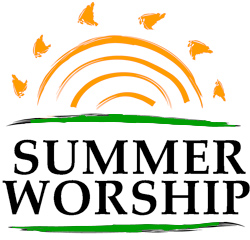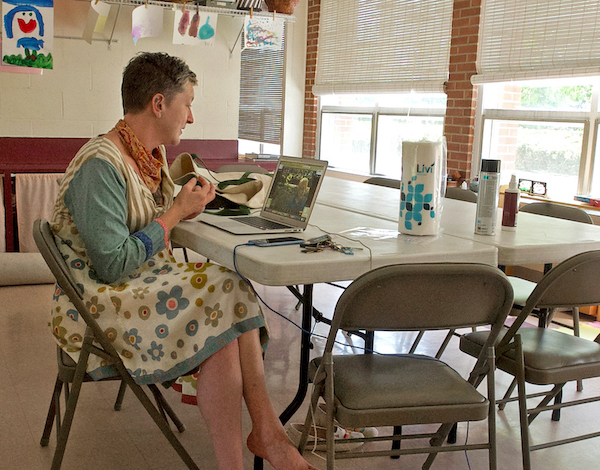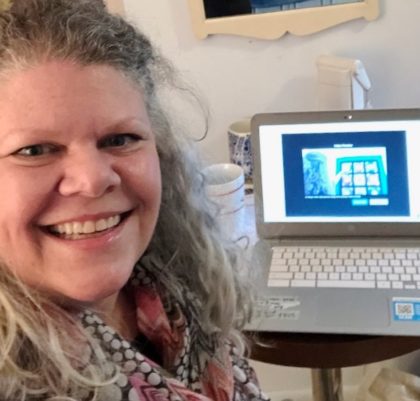
Summer Services to Explore Ethics & Unitarian Universalism
We are delighted to announce our 2020 Summer Service Program to be held on Sunday mornings beginning July 5 and continuing through September 6.

This Summer’s program will feature services centering around the theme of Ethics and Unitarian Universalism using material from the UUA Tapestry of Faith Curriculum “What We Choose: Ethics for Unitarian Universalists.”
Please see the following list of topics and questions to contemplate in preparation for each service.
July 5 “Moral Authority”
Recall an important moral or ethical decision you have made, and use the following focus questions to help you think about your decision-making process: What was the dilemma and what decision did you make?
What framework or ethical precepts guided your decision making? What was/were the source(s) of those precepts? Was it your conscience? Family, community, or cultural values? The wisdom of a moral or religious thinker? Literature? Scripture? Reason, or a scientific understanding? Some combination of sources? Why did you decide to grant that source the authority you ultimately gave it?
July 12 “Unchanging Truths”
Consider a situation in your life when your ethical/moral understandings or precepts differed from those of other people. What were the circumstances? What did you decide to do? When you consider your own ethics, are there positions you hold that you identify as specifically Unitarian Universalist or influenced by Unitarian Universalism? Are there unchanging truths to which you subscribe? If so what are they? How do they help you to live a moral life?
July 19 “The Collective Good”
Think of a time when you had to make a moral/ethical decision and the options before you looked equally bad. Given that there was no ideal way forward, how did you decide what to do? How did you weigh the options for your decision? How did emotions inform your decision making? How did you feel after making the decision? Was the outcome what you had expected? Would you still make the same decision?
July 26 “Cultivating Virtuous Character”
What people-famous or not-do you think have lived a virtuous life? What actions and qualities can you point to that make their lives virtuous? What virtues are most important to you? What guides you when you decide your action is virtuous? Are there times when acting virtuously causes personal risk? Do you have experience with such risk-taking, perhaps in a social justice stance? How do you view this kind of sacrifice? Is it worth it? Does being virtuous require risk-taking? Are there times when we must risk all for change and justice?
August 2 “Natural, Legal and Human Rights”
Our Unitarian Universalist Principles call us to affirm and promote “the inherent worth and dignity of every person” and “the right of conscience.” In which ways are these principles foundational to your ethical decision making? What other principles or rights are foundational to your ethical and moral decision making? What actions or positions do you take in your personal or public life that reflect a commitment to uphold certain rights? From what authority do the rights you uphold derive? If you have to choose one side or the other on an issue, and no gray area is allowed, are you stymied? In what ways do we use ambiguity to protect us from having to move on issues?
August 9 “The Story of Our Lives: Narrative Ethics”
Recall a time when you had an encounter with someone who had a significantly different background, identity, or life experience from your own. What difference did the encounter make in your broader understanding of people who share that background, identity, or life experience? Recall a time when you had a significant encounter with someone who is part of a marginalized group to which you do not belong (e.g., groups marginalized in our culture by race, ethnicity, economic status, affectional orientation, gender identity, or ability). What did you learn from the encounter? Did you or do you generalize what you learned to enhance your understanding of the challenges facing that group? Did you find parallels between your own experiences of marginalization and the experiences of the other person? Did the encounters with those different from yourself lead to new action on your part? Did it lead you to take a changed ethical or moral stance? What role might sharing the story of our lives play in shaping our moral framework?
August 16 “Relational Ethics”
When have you acted with compassion toward someone else, with the understanding that your action was the “right” thing to do? What were the circumstances? What questions or possibilities did you entertain before choosing to act? What motivates you to help others? What is the difference between what you might do for a friend and what you might do for a stranger? Can you expand your own circle of compassion? How do you determine what is the compassionate response in a given set of circumstances? How do you stay in relationship with another when acting out of compassion? Do you see acting with compassion and respecting relationship as choices or skills related to cultural norms or expectations for your gender? In what ways does a lens of gender add a new perspective to your understanding of ethics?
August 23 “Understanding Ethics from the Margins”
Do I have to be concerned about my day-to-day existence? Do I have enough to eat? A place to live? Options and choices in my life? Is my life or well-being at risk from systems and structures of government or of the dominant culture? If so, in what ways and under what circumstances? If not, how have I sought to understand the perspective of those whose lives or well-being are at risk? Am I prepared for the spiritual work of deep listening and openness to others’ stories? Am I prepared to be changed by those stories?
August 30 “An Ethic of Risk”
What have you done in your own life to work toward justice? What grounds your work? Have you become discouraged or cynical about the results of justice work? What were/are the circumstances? How do you gauge your current capacity to work toward justice in the world? What response do you have to Welch’s assertion that “a single actor cannot be moral” due to limited and partial understanding of a given situation?
September 6 “Revisiting to Moral Authority”
Recall a time in your life when your ethical or moral understandings at the time seemed inadequate? What issue or situation challenged you? How did you adapt to the situation? What new understanding or framework emerged? What behavioral choice(s) did you make? What about you changed as a result of this encounter?
Due to ongoing concerns related to the COVID-19 Pandemic, services will be held remotely via ZOOM. (unless communicated otherwise this summer). For administrative purposes, participants will be asked to register for each session through the link published. To register for these services CLICK HERE. For more information or questions about our Summer Services Program please email .
A Summer of Diversity and Justice for UUCW Religious Exploration & Education
Robin Mitzcavitch, Director of Religious Exploration & Education

This summer we will offer a virtual RE program. Exploring Diversity and Justice – Stories and Discussion for Children will begin on June 21st and run through August 30th. Our virtual summers will be most Sundays from 9 am to approximately 9:30-9:45 am.
We have a wonderful RE library at UUCW filled with books that align with our Unitarian Universalist Principles. Therefore, we have many important books that allow us to explore challenging topics like racial equality, different types of families, food justice, LGBTQI discussions and immigration. We have intentionally culled together special books that honor our roots, our differences, and our unique abilities. Over the summer we will explore different topics that I will pre-announce each week, and give children space to have light discussions in a safe environment over Zoom.
Children’s Summer Program 2020
| Date | Time | Topic |
| June 14 | 10 am | RE Sunday Service – Only one service for all |
| June 21 | 9 am | Father’s Day – Family/Child Zoom |
| June 28 | 9 am | What is General Assembly? Family/Child Zoom |
| July 4 | — | No RE Class |
| July 19 to Aug 30 | 9 am | Exploring Diversity and Justice – Stories and Discussions for Children |
| September 6 | — | No RE Class |
| September 13 | ? | Regular RE Programming – Stay tuned to find out what that looks like! |
